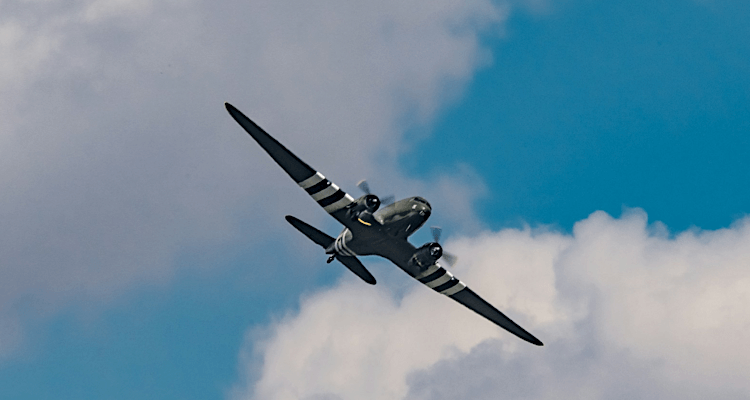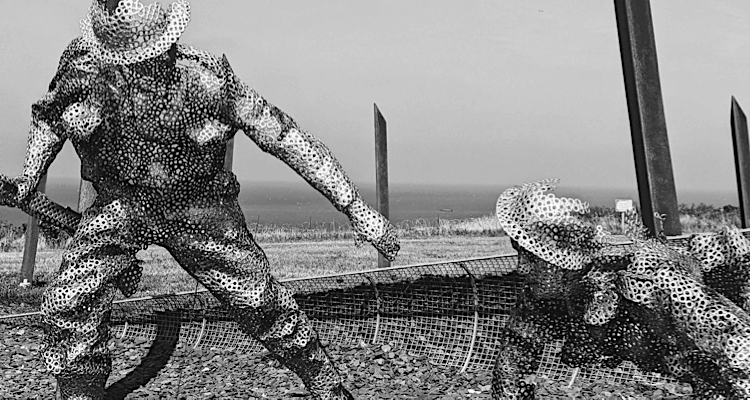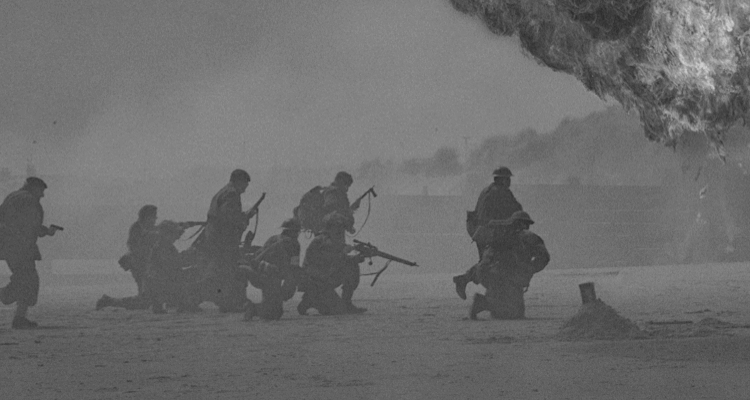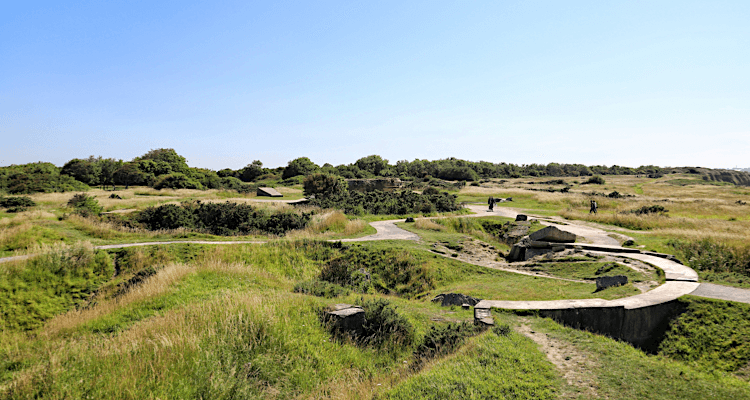
D-Day 80th Anniversary on 6 June 2024
Our look back at the famous operation that changed the course of WW2
D-Day 80th Anniversary – marking the event
The 6th June 2024 marks 80 years exactly since one of the largest and probably most famous allied actions of World War Two – Operation Overlord, better known as D-Day.
June 1944. D-Day saw Allied Troops invade Northern France. As well as soldiers parachuting in, the operation included the largest ever invasion by water, with over 6,000 ships and landing craft taking around 130,000 allied troops.
Not since the Dunkirk evacuation in 1940 would so many allied soldiers be on the ground in Western Europe to begin the long and difficult campaign to push the Nazi forces back into Germany.
D-Day marked the beginning of the final turning point of the war, ultimately liberating France and then the whole of Europe from the Nazi regime, when Hitler was finally defeated.
How the D-Day operation was kept secret
While the allies could not hide their huge build-up of troops and equipment, there was much secrecy surrounding the exact timing of D-Day.
Originally planned for 1st May, more landing craft were needed, so the operation was rescheduled to 5th June 1944, to allow time for their production. This also coincided with favourable tides and phases of the moon, as well as the longer daylight hours with midsummer approaching.
However, stormy weather in early June meant that the operation would have been considerably delayed, if it had not been for a brief break in the weather forecast for the 6th. This respite allowed over 18,000 troops to arrive in France by parachute during the night, followed at dawn by Operation Neptune, the invasion by sea.

Pic: RichardRSchinemann@Unsplash
D-Days Landings – Calais or Normandy?
The other top-secret aspect was the location of the invasion. Allied deception and the work of spies and double agents led the Nazis to believe that an invasion would take place around Calais, as this is the closest part of France to Britain.
Because of this, large numbers of German troops and equipment were positioned in and around Calais in anticipation. Instead, the landing operation took place across five beaches in Normandy – less heavily defended, but much further from Britain and much more challenging in terms of transport of troops and equipment.
And even as late as July 1944, the Nazi forces continued to wait for a second invasion front across from Dover (which never came), meaning the allied troops met with less resistance as they battled through Normandy towards Paris.
An international military operation on an epic scale
In total, over two million troops from more than a dozen countries arrived in Britain to take part in the operations to liberate Europe in the second half of 1944.
Most foreign soldiers came from America and Canada, but also included personnel from Australia, New Zealand and Rhodesia in the British Empire, as well as from Nazi-occupied territories such as Poland, Czechoslovakia, Belgium, France, Holland and even Norway.
D-Day – a massive logistical challenge
As well as being a huge military campaign, Operation Overlord was an enormous logistical operation too.
Every soldier needed supplies as they advanced – food, water and ammunition, as well as military equipment such as radios and weapons, vehicles and tanks and of course fuel.
All of this was transported thanks to British ingenuity on an incredible scale, such as the temporary ‘Mulberry’ harbours which were floated into place across the Channel, as well as pipelines rolled out across the sea from Britain to pump in fuel.

Pic : GabrieleLancione@Unsplash
Why we commemorate D-Day
It is no wonder then that all of this courage, bravery and achievement around the D-Day operations and subsequent campaign is commemorated on the 6th June every year.
There are events in Normandy and Great Britain and of course, this important story has been immortalised in numerous books and films, such as The Longest Day, Overlord and Saving Private Ryan.
Looking back at the 70th D-Day anniversary
The focus of the 70th anniversary in 2014 was a final large gathering of veterans. As the youngest were, by this time, in their late eighties, it was recognised that sadly such a big gathering of surviving people who were there on 6th June 1944 would never happen again.
Trips for groups of veterans to go to France were organised – and the story of one old soldier in particular hit the headlines. Eighty-nine-year-old Royal Navy veteran Bernard Jordan missed a place on a group visit, so “broke out” of his retirement home and made his own way to France for the commemorations!
Bernard’s story proved such a hit that it inspired the 2023 film ‘The Great Escaper’ starring Michael Caine and Glenda Jackson.
Looking ahead to the the 80th D-Day Anniversary in 2024
So 2024 marks the 80th anniversary of D-Day and now very few veterans remain to tell their stories as the final eyewitnesses to events on the day. The youngest of them are now in their late nineties.
Many events are being held both in the UK and in France to commemorate the D-Day landings. 80th D-Day events at IWM Duxford include lectures, workshops, film screenings and the D-Day 80 Summer Airshow – and we’re sure the D-Day veterans will be VIP guests!
If you’re interested in classic military aviation, Into The Blue has an experience for you. From Harvard Flights and Spitfire Experiences, to Tiger Moth flights and the very special RAF Memorial Flight Club Membership. All available to buy online from intotheblue.co.uk



